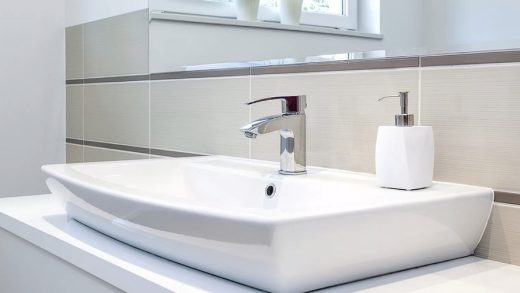Where you register your company in the UAE affects every core aspect of its operation. It determines your trading scope, tax exposure, office requirements, and visa eligibility. Understanding the differences between Mainland, Free Zone, and Offshore structures helps you choose the one that fits your business objectives from the start. Even if you’re focused on business setup in Dubai, company formation in Abu Dhabi, business setup in Sharjah or launching an offshore company, jurisdiction matters.
Mainland Companies: Broad Reach and Onshore Benefits

Mainland companies in the UAE are licensed through the Department of Economic Development (DED) of each emirate. What sets them apart? They’re permitted to operate anywhere across the UAE and even internationally. That’s about as much flexibility as you can ask for in terms of business geography.
Since late 2020, there’s been a big shift. Most types of mainland businesses now allow 100% foreign ownership. It’s a game-changer, though there are still a few sectors where local involvement remains a must. Not everything’s completely open yet.
One thing that’s non-negotiable is physical space. You’ll need to lease at least 200 square feet of office space. Virtual offices are not an option. The number of visas you’re eligible to issue is tied directly to the office size, roughly one visa per 80 square feet. A refundable deposit of AED 3,000 is required for each visa.
Tax-wise, the rules are clear. If your company pulls in more than AED 375,000 in annual profit, you’ll be looking at a 9% corporate tax. For anyone exploring mainland company formation in Dubai, these requirements form a key part of the planning process. Proper UAE corporate tax registration is also essential to remain compliant.
Free Zone Companies: International Focus and Tax Relief

Free Zone entities operate within one of over 45 economic zones in the UAE. Each zone is managed by a Free Zone Authority (FZA) and offers customized registration packages. These companies benefit from 100% foreign ownership, no corporate tax (if compliant), and no local sponsor requirements.
They can’t do direct business in the UAE mainland without a local agent or setting up a DED-licensed branch. Visa quotas vary by zone and depend on workspace type. For example, a flexi desk in DMCC might permit three visas, while a full office may allow five.
Free Zones often serve specific industries. JAFZA is strong in logistics, DMC caters to media, and ADGM is geared toward finance. Companies enjoy full repatriation of profits, exemption from import or export duties, and tax relief if they meet economic substance requirements and derive qualifying income.
For those interested in business setup in Dubai free zone areas or looking into business setup in UAE free zone jurisdictions more broadly, this structure offers a streamlined and tax-efficient path. Popular options also include Sharjah free zone company setup and RAK free zone company setup, depending on your location preferences.
Offshore Companies: Holding Structures and Cost Savings

Offshore companies are typically set up in RAK ICC or JAFZA Offshore. They are often used for holding assets, international business, or tax planning. They cannot operate within the UAE but can own shares in both Mainland and Free Zone companies.
These businesses do not require office space or visas. Initial costs are low, starting around AED 12,000, and there’s no need for declared capital. Offshore setups are often used to manage IP, facilitate global payments, or hold investments. Incorporation is done through licensed agents and usually requires only minimal documentation. This route is ideal for those focused on offshore company formation in UAE.
Key Differences at a Glance

- Taxation: Only Mainland companies are taxed 9% on profits exceeding AED 375,000. Free Zone and Offshore companies remain tax-exempt if they meet specific conditions.
- Visas: Offshore entities can’t issue visas. Mainland firms have scalable visa limits based on office space, while Free Zones offer fixed quotas tied to office type.
- Operations: Mainland companies can serve clients anywhere in the UAE. Free Zone companies are limited to their zone and international trade. Offshore companies are restricted to non-UAE operations.
- Office Requirements: Physical offices are required for Mainland and Free Zone setups. Offshore entities do not need one.
- Startup Costs: Offshore starts at AED 12,000, Free Zone from AED 12,500, and Mainland from AED 16,500.
How to Choose
If your business needs to operate across the UAE and compete for public contracts, choose a Mainland setup. It is the most suitable for company formation in Dubai mainland or for a broader mainland business setup in Dubai or company setup Abu Dhabi.
If you’re targeting international markets and want to minimize taxes, consider a Free Zone. This structure is ideal for those looking into setting up a company in Dubai for global trade.
If your goals involve holding assets or managing global business without local trade, Offshore is the way to go. Offshore company formation in Dubai or setting up an offshore entity in RAK offers efficiency and privacy for cross-border ventures.
Think beyond current needs. Weigh your long-term plans, target markets, licensing scope, and staffing requirements before committing to a jurisdiction. Whether you’re pursuing business setup in Sharjah, company formation in Ras Al Khaimah, or business setup in Abu Dhabi, clarity in strategy is key.
Final Thought
Your choice of jurisdiction will shape your business’s legal obligations, financial structure, and market access. Take time to define your objectives and consider where your customers are, what services you’ll offer, and how much of a footprint you need in the UAE. That clarity will make the registration process smoother and strengthen your foundation.




